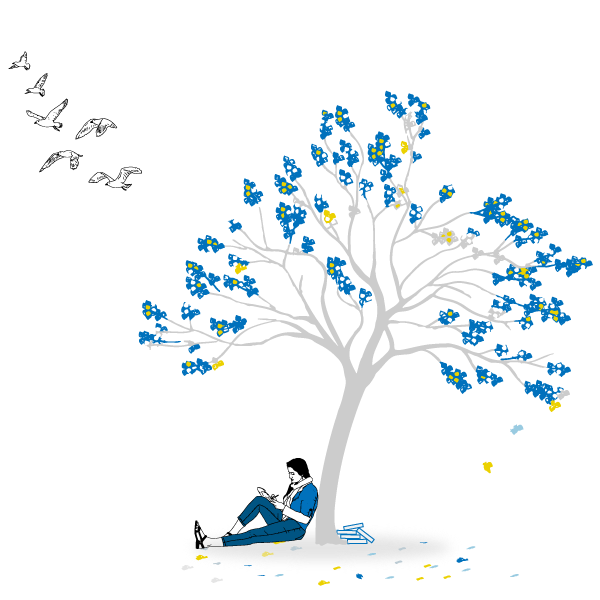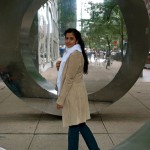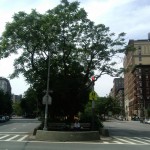Still Sundays
April 3rd.
Rome, Italy.
Born in the eye of the night. Time travel. “You don’t alter the past; you fulfill it.” ~ J. Richard Gott.
If you would like to know what Still Sundays is about, please take a quick gander here and just read the third paragraph. Thanks.
~~~~~~~~~~~~~~~~~~~~~~~~~~~~~~~~~~
Some winters are a glacier of many accumulated winters. Such a winter is a slowly moving mass until it avalanches into a spring you no longer even await. These tyrannical winters endure so persistently that anything blossoming feels unfamiliar: you can’t even recall it was really you who won the brawl against the past to have had sown the seeds of what is finally sprouting, although the sod remains cold and stubborn.
But it’s here. Moody spring, a woman who wants to be addressed as mademoiselle. Before you know it she will disappear as a damsel in distress into the arms of summer. Spring has never felt like a real season to me. A beginning and an end, too fast, that exists mostly in imagination.
I was born in the eye of the night—3: 30 A.M.—into the dragnet of spring, a season that doesn’t embrace time too long anywhere in the world, overlooking a valley town between mysterious mountains. My mother says the labor lasted a good twelve hours without any epidural. A labor of love for a lifetime: the bond between a mother and her child.
My father was in between London and Dublin when I was born. A fact that he still hasn’t forgotten: what would he not have given to be with my mother if only he could have afforded. When my mother finally mailed him a cassette recording of my crying, he couldn’t even afford to rent a cassette player. So he went to an Islamic Center—one of few rare occasions he has ever stepped in one—and played the tape. There I was, crying over the loud speakers. A prayer: a cry of a child having left one universe inside a womb and delivered into another. The manager and priest rushed in to find who was messing with the sound system. My father told them to have a seat and enjoy the sound of his first born crying. They were shocked to learn that in a culture where most men bury their first-born alive if she is female he had prayed for a daughter.
My parents worked very hard and sacrificed too much—-much too much—-to provide for me and then, two years later, my brother Zain. It would take quite a few years thereafter for them to finally reach the wave of stability and security. But by then time had crept in their bones but not their fierce spirits, a living testament that courage and love not only endure all but can have all—or what is still available for taking. It is an accepted fact in our family that the two younger siblings after Zain had a very different set of parents than Zain and me; of course this takes into account geography and finances—the younger two were raised in the United States since the ages of four onwards. Despite all our differences all four of us are very close (this extends to the younger two’s spouses)—this is because we hold certain values closer.
My father has never forgotten where he once was but neither is he ungrateful that due to many years of hard work, risks, and reconciliation with many memories, he can now easily afford and owns the most expensive speakers and sound system, the kind found at certain exclusive clubs, in his own home, given his passion for music. He has very few such “tech toys”; he is the most non-materialistic and humble man I know. It seems the more he gives the more he receives.
When we ask our parents how do we pay them back: they say do what their parents couldn’t and when they could they didn’t: pay it forward to yours and beyond yours. Mama often says, “Life is a momentum, although not always linear, moves only forward.”
~~~~~~~~~~~~~~~~~~~~~~~~~~~~~~~~~~
Time.
Time and I had another dance.
I am reading J. Richard Gott’s Time Travel In Einstein’s Universe. I appreciate the writing style very much—it feels as if listening to an exceptional professor who knows not only the subject matter but also knows how to teach it. Most people who know and understand a subject can seldom teach it.
As someone who writes stories that are deemed “out there,” I appreciate that Gott begins by many references—films and books—that have dealt with time travel. At one point Gott explicitly states, “As you can see, science fiction always gets scientists thinking.”
H.G. Well’s book was extraordinary prescient in interpreting time as a fourth dimension. Einstein would use the idea in his 1905 theory of special relativity, which describes how time is measured differently by stationary and moving observers. Einstein’s work, expanded by his mathematics professor Hermann Minkowski, shows that time can indeed be treated mathematically as a fourth dimension. Our universe is thus four dimensional.
If I want to invite you to a party, I must give you four coordinates. I may say the party will be at 43rd Street, 3rd Avenue, 51st floor next New Year’s Eve. The first three coordinates (43rd Street, 3rd Avenue, 51st floor) locate its position in space. Then I must tell you the time. The first two coordinates tell you where to go on the surface of the Earth, the third tells you how high to go, and the fourth tell you when to arrive.
Then Gott discusses the different theories of quantum mechanics. The one that intrigues most is that of parallel universes.
To someone hoping to find a time machine in order to go to the past to save a lost one, the most comforting thing I can say is that, as far as we understand today, this can only be accomplished if the many-worlds theory of quantum mechanics is true. And if that is true, then there is already a parallel universe in which your loved one is okay now. That’s because all the possible universes exist.
Then there is the less popular view based on the “principle of self-consistency.”
Time travelers don’t change the past because they were always part of it. If you witness a previous event, it must play out just as before. This seems contrary to the common sense notion of free will. Though we seem to experience free will, to be able to do what we please, the time traveler seems constrained. This seems to rob the time traveler of an essential human ability. But consider this. Free will never did allow one to do something logically impossible. The four dimensional entity does not change—it is like an intricate, fixed sculpture.
Some other passages that this Sunday’s stillness lingered on while I was in flight—no time travel!—on my way from New York City to Rome:
- The reason we have three dimensions of space and one dimension of time may lie in how gravity works. Einstein explained gravity by showing how mass causes spacetime to curve. Massive objects in Flatland do not attract each other—there is no gravitational attraction at a distance.
- Suppose we had two dimensions of time. After all, ancient Aboriginal wisdom told of a second time—the dreamtime. In that case, the universe would be five dimensional.
- Intelligent life is potent in principle but, being complex, usually fragile in practice. We’ve amassed a track record of only 200,000 years on one tiny spec in this vast universe that’s already 13 billion years old. We are not very powerful—we control sources of energy that are tiny even compared to the Sun.
- But it’s precisely in feats of understanding, rather than in longevity or power, that one might expect intelligent observers to excel. The ability to ask questions seems to give some ability to answer them, but it doesn’t give us a lot of time. One of the things we should understand about time is that we have just a little.
~~~~~~~~~~~~~~~~~~~~~~~~~~~~~~~~~~
I was in Rome over 12 years ago. A much younger me who didn’t even know what she was running from or to—just running. I recall having enjoyed my travels through Italy tremendously. But it was a long time ago and it was quick and like most travel it suspends your understanding about your worldview. I was enrolled to study French in Paris and before the program began I spent a solid six weeks traveling through the popular Western European cities by train. It was fun and a great learning experience. But the running never stopped.
My mother wanted to visit then but she couldn’t. She is here with me now.
I am sitting in a restaurant in Piazza Navona on a beautiful, sunny Sunday. It really is spring, mademoiselle.
I see a girl walking by—backpack on her shoulders that weighs far less than her thoughts—trying to find how far she can run from who she is without any more destruction to herself. She smiles because who doesn’t smile while visiting Italy.
Einstein showed that a little bit of mass could be converted into an enormous amount of energy. I wish I could tell her it’s okay if she understands E = mc2 but does not understand death or love.
That she should just accept the infamous quote attributed to Einstein, “gravity is not responsible for people falling in love,” even though she will later learn more about gravity to perhaps question that.
Above all else, I want her to know Love gives many chances. It only asks for courage to neither run from someone nor to someone, including oneself, in the stillness where you meet yourself just as you are.
~~~~~~~~~~~~~~~~~~~~~~~~~~~~~~~~~~
Mount Etna in Sicily, the largest active volcano in Europe, is on the itinerary and I have never been there before.
Given all the world suffering I can’t ignore (self-imposed and due to natural disasters), I stare into the stillness of Rome, a city that has stood the test of time and exhale deep gratitude for this time with my mother.
“You don’t alter the past; you fulfill it.” ~ J. Richard Gott



I can recognize someone I don’t always know too well, myself, in this passage of your post: “I see a girl walking by—backpack on her shoulders that weighs far less than her thoughts—trying to find how far she can run from who she is without any more destruction to herself. She smiles because who doesn’t smile while visiting Italy.”
I’ve been to Italy last November and though I only spent half a night in Rome, at the airport as I was headed to Sicily, it felt surreal to be in such a time-tested city.
I loved Sicily. The view from the porch of my friend’s house was of Mount Etna. I never got close, never set foot on it, but the majestic feel it emanates still fills me.
Most of all I loved Siracusa (I recommend you try and visit it if you get a chance). It’s this amazing city surrounded by the sea, a one-day walk is enough to see all its beauty and end up wanting more!
And though, as much as all the places I visited in Sicily have filled me with memories I’ll cherish forever – the above mentioned paragraph described me perfectly…
Annie,
Couldn’t help but remember Eliot’s lines from “Burnt Norton” while reading your essay.
“Time present and time past
Are both perhaps present in time future,
And time future contained in time past.
If all time is eternally present
All time is unredeemable.”
All of which dovetails quite nicely with Einstein and Quantum Physics, and J. Richard Gott. Thanks as always for a wonderful way to be on Sundays.
That quote is perfect… me, trying to fulfill my past and future I suppose.
You and momma have fun!
Beautiful post Annie :~)
my mind is now like a wonderful bowl of thoughts
flowing around :~) gravity…time travel.. dimentions…waves…
My sister and I are headed to Rome at the end of the summer.. enjoy
[…] “Above all else…Love gives many chances. It only asks for courage to neither run from so… […]
Thanks, Annie, for your all-embracing sense of time: your beautiful evocation of the past, your deep appreciation of the present, and your sensitivity to the promise of the future.
So happy you are enjoying Richard’s book!
~lucy
Gives great insight and provokes thought
[…] couple of weeks ago, I read one of Annie Q. Syed’s Still Sundays posts. It was just wonderful, as all her writing is! Yet one passage at the end of her post captured my […]